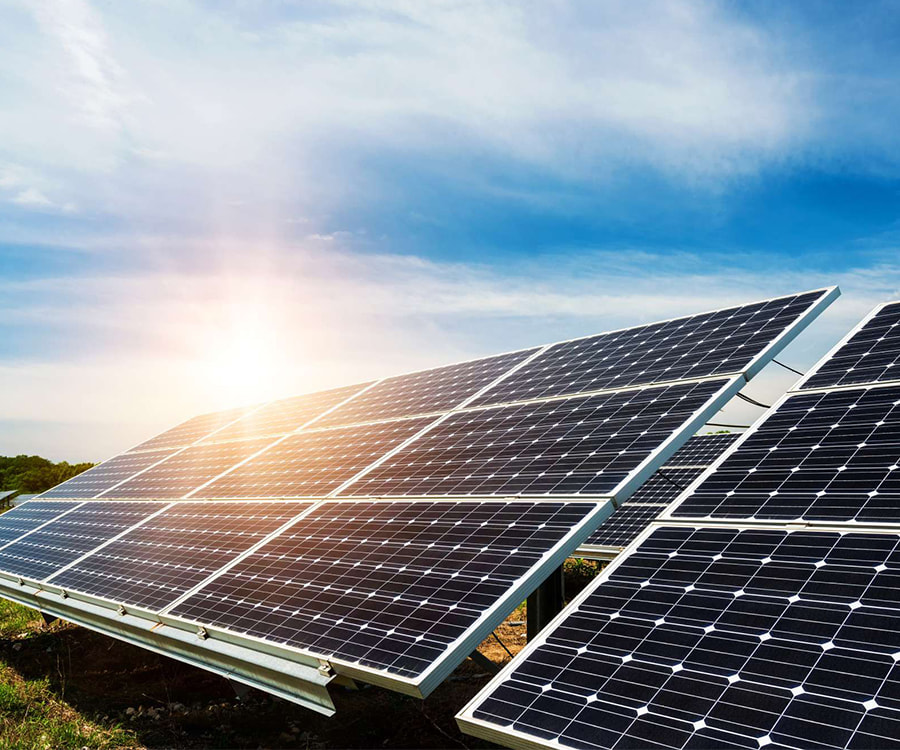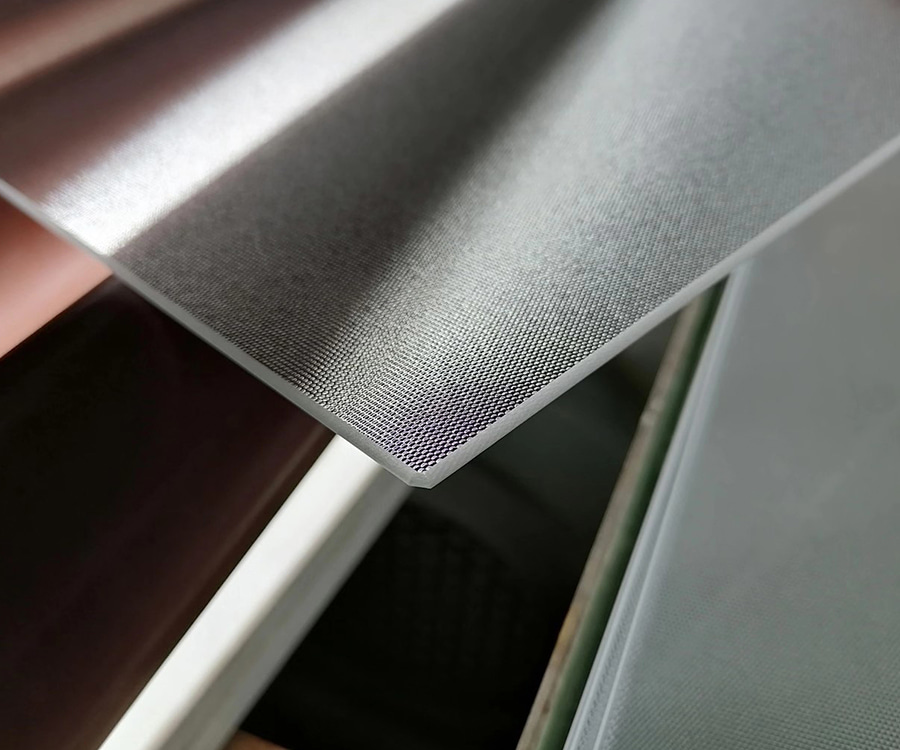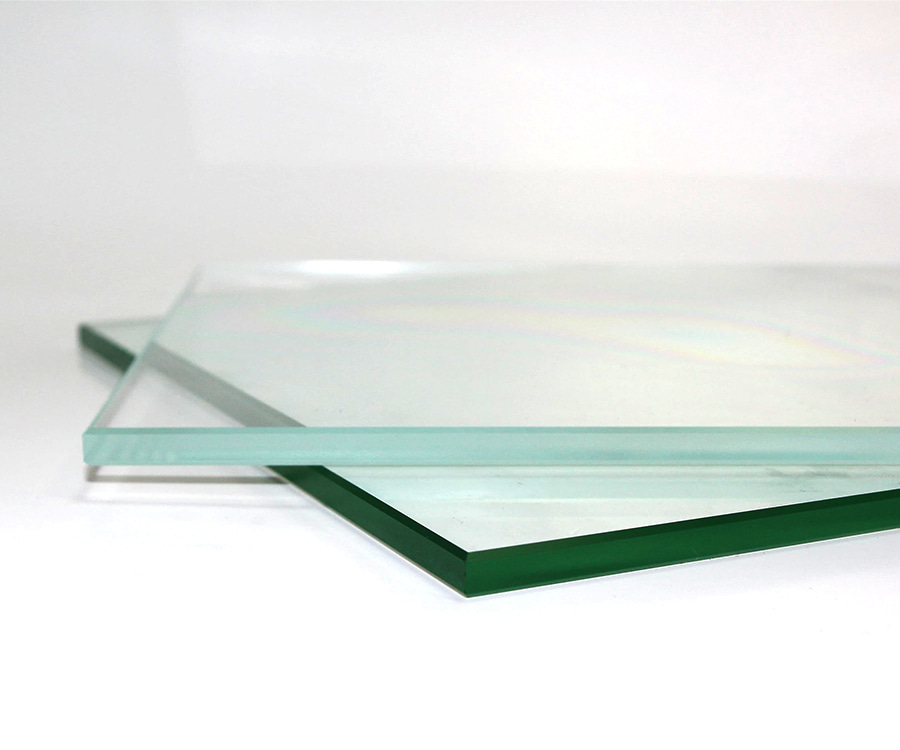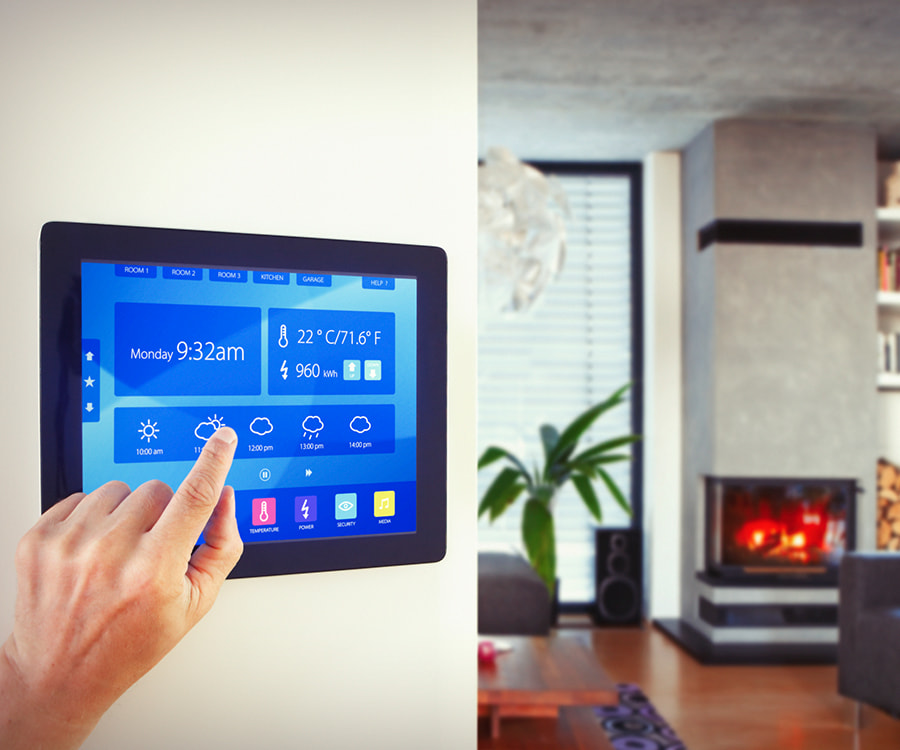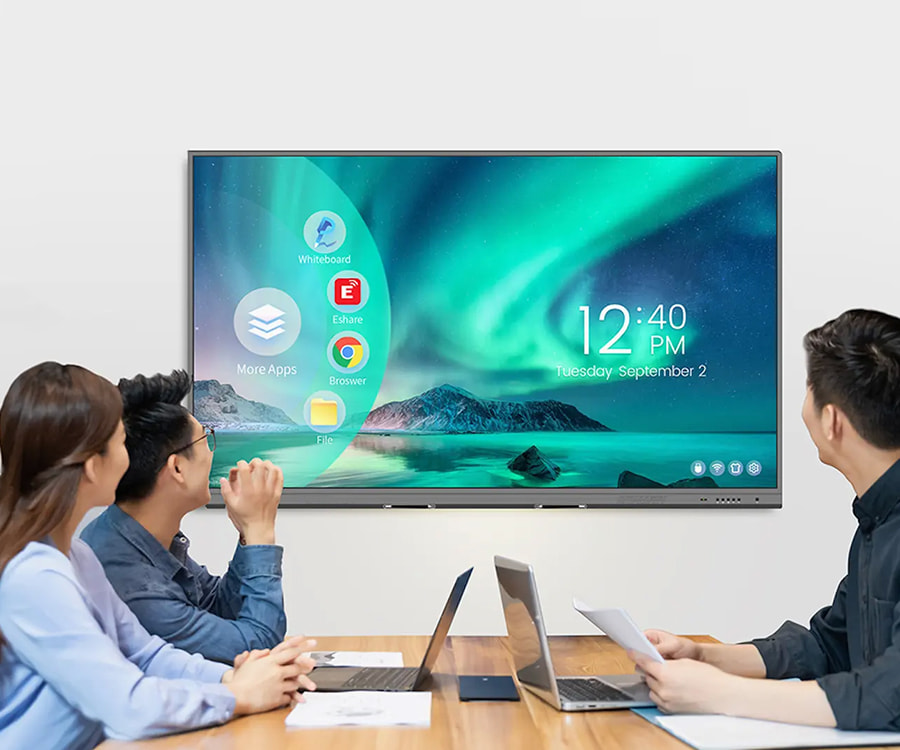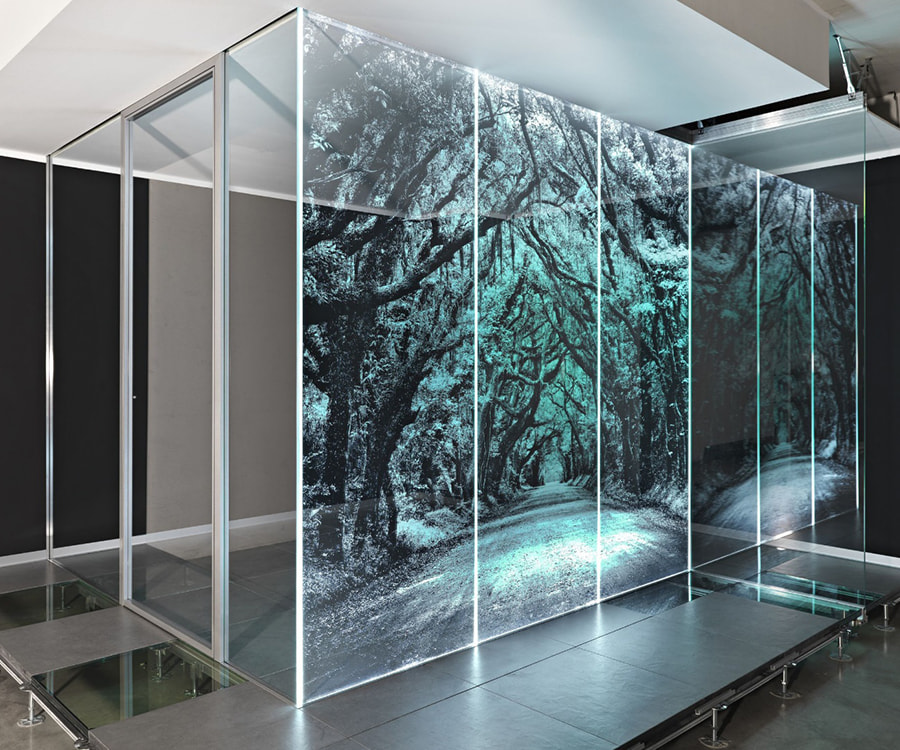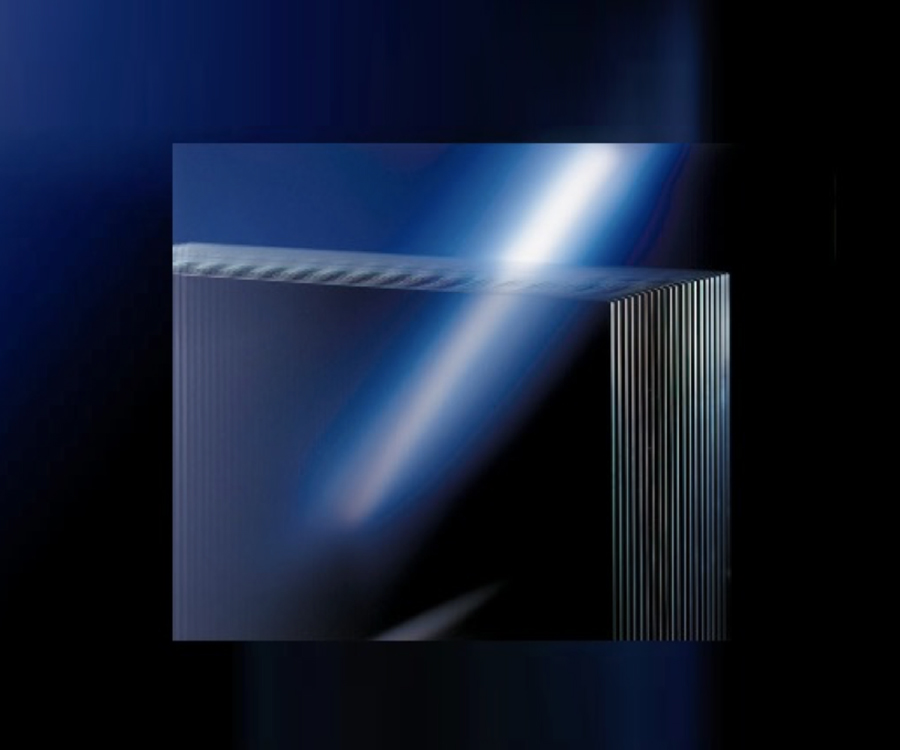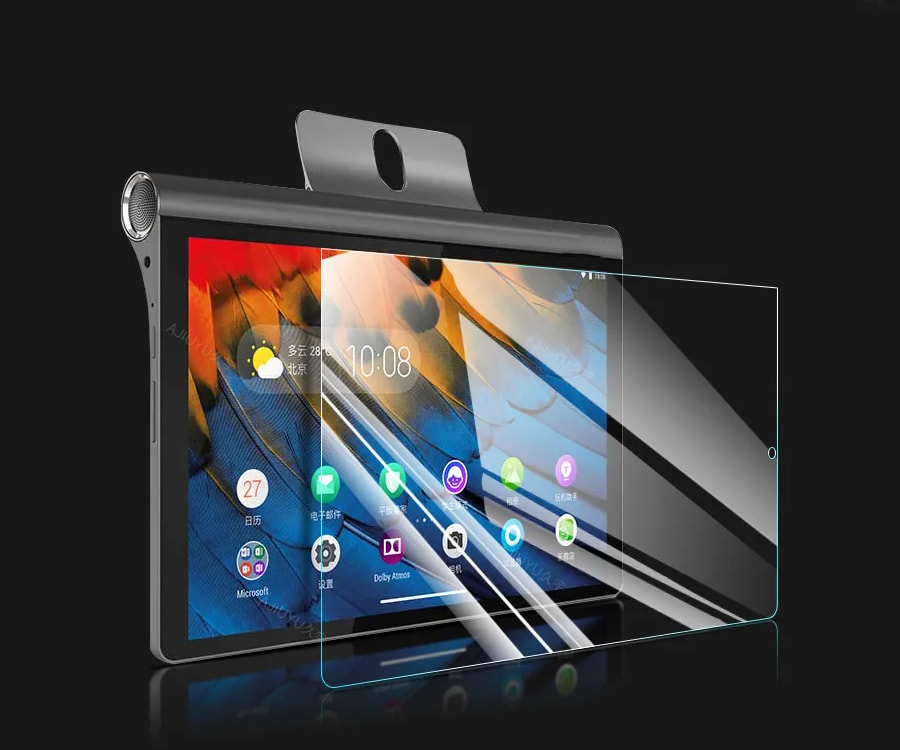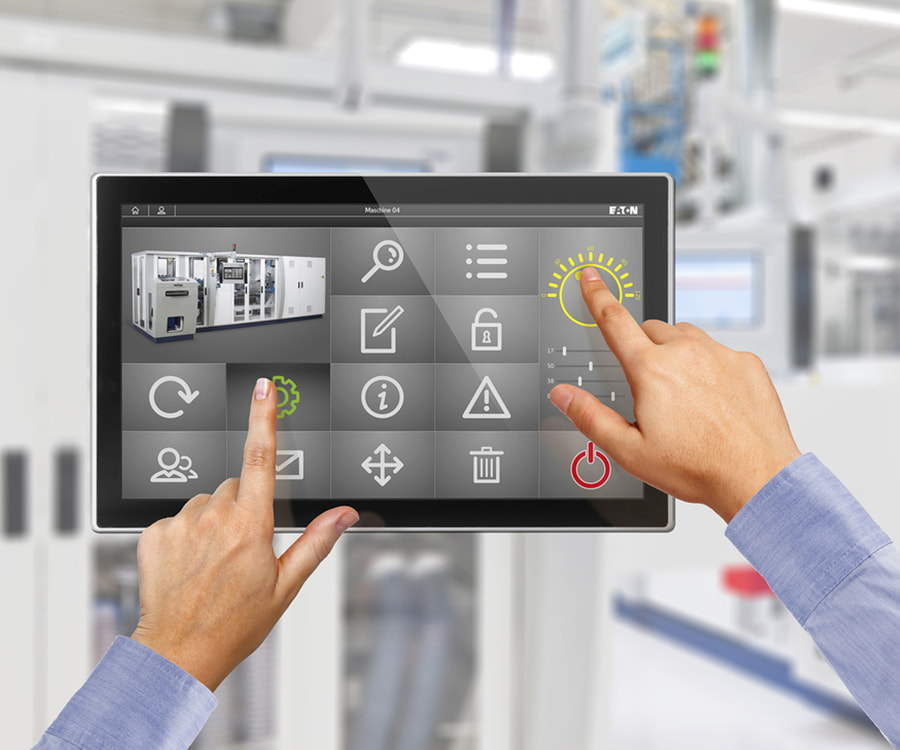Photovoltaic Module Backsheet Glass can be enhanced in strength and durability through a variety of processing technologies, which mainly include tempering, semi-tempered treatment and coating technology. Tempering treatment is to form a compressive stress layer on the surface of the glass by physical or chemical methods, so that when the glass is subjected to external forces, the surface stress is first offset, thereby improving the bearing capacity of the glass and enhancing the resistance to wind pressure, cold and heat, impact, etc. Tempering treatment usually includes heating, quenching and other steps, so that compressive stress is formed on the surface of the glass and tensile stress is formed inside, thereby changing the physical properties of the glass. The tempered Photovoltaic Module Backsheet Glass has higher strength and better impact resistance, which can better protect the internal structure of the photovoltaic module and extend its service life.
Semi-tempered treatment is a treatment method between ordinary glass and tempered glass, and its strength and durability are also between the two. Although semi-tempered glass is slightly inferior to tempered glass in strength and durability, it is also a good choice in some specific applications, such as designs that require a certain degree of flexibility or lightweight.
The glazing process is to apply a layer of glaze on the surface of the glass, and after high-temperature firing, a hard and smooth glaze layer is formed. This glaze layer can not only improve the corrosion resistance and weather resistance of the glass, but also give the glass a certain decorative effect. Enamel coating is a special coating technology whose reflectivity can reach a high level within a specific wavelength range. This coating technology can further improve the power generation efficiency of photovoltaic modules because it can reduce the reflection loss of light and allow more light to enter the photovoltaic cell for photoelectric conversion.
Embossed glass is a treatment method that enhances the aesthetics and anti-slip properties by pressing patterns or patterns on the surface of the glass. Although the embossing treatment has limited direct effect on the strength of the glass, it can reduce the risk of glass breakage caused by wind pressure or vibration by increasing the friction of the glass surface. Float glass is a glass product with a flat surface and good gloss. Its production process uses the float process to flatten and shape the glass in a tin bath to obtain a high-quality surface. When float glass is used as backplane glass, its flat surface is conducive to the assembly and sealing of photovoltaic modules.
The strength and durability of photovoltaic module back glass can be enhanced through various processing technologies such as tempering, semi-tempered treatment and coating technology. These technologies have their own characteristics and application scenarios, and can be selected according to specific needs.


